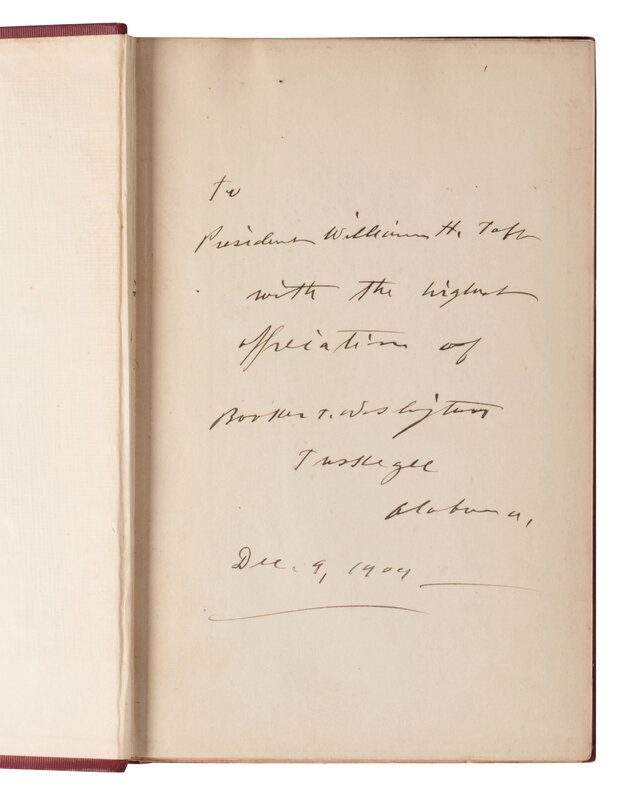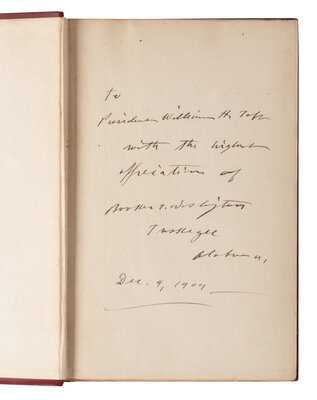Condition Report
Contact Information
Lot 10
WASHINGTON, Booker T. The Story of the Negro. The Rise of the Race from Slavery. NY, 1909.
Sale 2070 - American Historical Ephemera & Photography, including African Americana
Lots Open
Feb 14, 2025
Lots Close
Feb 27, 2025
Timed Online / Cincinnati
Own a similar item?
Estimate
$6,000 -
8,000
Price Realized
$9,600
Sold prices are inclusive of Buyer’s Premium
Lot Description
WASHINGTON, Booker T. The Story of the Negro. The Rise of the Race from Slavery. NY, 1909.
New York: Doubleday, Page & Company, 1909. 2 volumes, 8vo. Photographic frontispiece of Washington after George G. Rockwood. Original burgundy red cloth, gilt-lettered spines, top edges gilt (slight fraying at ends, horizontal closed tear at center of vol.1 spine). Provenance: William H. Taft (recipient of author's inscription on front free endpaper in vol.1).
FIRST EDITION. INSCRIBED TO PRESIDENT WILLIAM H. TAFT FROM BOOKER T. WASHINGTON: "To President William H. Taft, with the highest appreciation of Booker T. Washington, Tuskegee, Alabama. Dec. 9, 1909."
Booker T. Washington was a prominent African American educator, author, and orator who rose from slavery to become the founder and first president of Tuskegee Institute (now Tuskegee University) in Alabama. He advocated for Black economic advancement through education and vocational training, promoting a controversial philosophy of racial accommodation known as the Atlanta Compromise, which emphasized gradual progress and cooperation with white society rather than immediate demands for civil rights. Taft, who served as President from 1909 to 1913, consulted Washington on racial issues and appointments of African Americans to federal positions, continuing the precedent set by President Theodore Roosevelt, who had also sought Washington's guidance during his term.
In The Story of the Negro, Washington traces the history of Americans of African descent from before slavery to the beginning of the 20th century. In Washington's preface he writes, "If the reading of these chapters shall in any degree inspire any Negro to make himself useful and successful in the world…I shall feel that I have accomplished what I started out to do in the writing of these pages."



